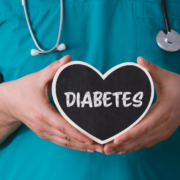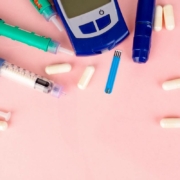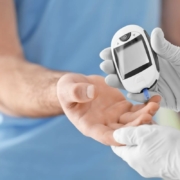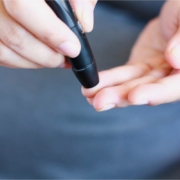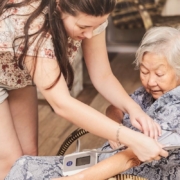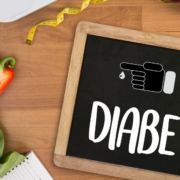5 Early Signs of Diabetes and When to See a Doctor
Today, diabetes affects nearly 29 million Americans, but the simple reality is that it may actually affect many more. The diagnosis in many people is often delayed because they’re not severe enough to seek medical attention, which means this very serious condition could go undiagnosed until it’s too late. What are the early symptoms of diabetes? When should you see a doctor? This guide can help.
Five First Signs of Diabetes You Should Know Now
If you’re worried you might be experiencing diabetes, your best option is to look for problems like these:
- Skin Problems: If you are experiencing diabetes, you may notice any number of skin problems. Your skin might become dry and itchy. You may notice your lips are parched. You might have wounds that don’t heal or ongoing skin infections. You may even notice white patches on the skin inside your mouth or sores around your mouth and on your lips. Discoloration in the armpits is quite common as well.
- Vision Problems: Blurred vision is a fairly common early symptom of diabetes. With this condition, the glucose levels in your blood begin to build, and the fluid around your eyes becomes more viscous. As a result, it can be tough to see.
- Mood Problems: If you’re very tired or incredibly irritable, you may have a fairly common early symptom of diabetes.
- Eating Issues: If you find yourself incredibly hungry or incredibly thirsty or you have difficulty eating or swallowing, you may be suffering from the early symptoms of diabetes.
- Other Health Issues: Other health issues you might experience include increased urination, constant exhaustion, and even dry mouth.
More Than One Condition
There are two different types of diabetes, and each comes with its own warning signs and symptoms. Type 1 diabetes is more common in children, while Type 2 is more prevalent in adults. With Type 1 diabetes, the symptoms occur incredibly quickly when the child is fairly young, and they can be quite severe when they initially present themselves. Often Type 1 diabetics present with a condition called diabetic ketoacidosis, which is life-threatening and requires immediate treatment. It might be triggered by an infection, sudden environmental changes, or even certain medications. Usually, the patient experiences frequent urination, excessive thirst, overwhelming confusion, stomach pain, weakness, and even shortness of breath. Typically doctors do a urine test that shows a high level of ketones, and patients are treated with both fluids and insulin.
With Type 2 diabetes, the symptoms don’t usually begin until you reach your 40s, and they tend to come on gradually. Patients may notice gradual weight gain, which tends to come with increased thirst, frequent urination, and constant hunger. Additionally, patients tend to notice ongoing yeast infections, pain, numbness, and even tingling on their extremities like their feet.
Low Blood Sugar
In many cases, the early symptoms of diabetes are due to high blood sugars, but that’s not always the case. Sometimes people have trouble regulating their blood sugar when they develop diabetes. That can mean they experience a lower than normal blood sugar after a workout, a missed meal, or a new medication. This can lead to concerning problems like confusion, dizziness, anxiety, excess sweat, disorientation, anxiety, exhaustion, headache, tremors, or even seizures. Emergency room treatment in these situations is a must.
When to See a Doctor
Both type 1 and type 2 diabetes have numerous early symptoms, but they’re not always specific. If you have risk factors for diabetes or someone in your family has diabetes, then it is important to get blood sugars checked regularly. Today the diagnosis of diabetes can be made with a simple blood test that only takes 30 minutes. The sooner you treat the symptoms of diabetes, the less likely it is that you will develop the complications of the disorder.

